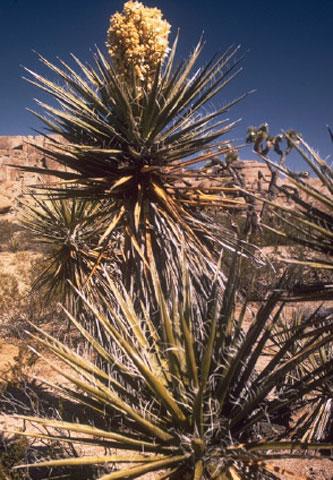Officials at Joshua Tree National Park in California announced that the Jumbo Rocks Campground has been temporarily closed due a rather unusual wildlife safety problem—swarming bees.
According to the park,
The closure will remain in force until noon on August 10. To compensate for the campsites closed at Jumbo Rocks, Ryan Campground, located approximately six miles west of Jumbo Rocks will be re-opened.
As seasonal dry conditions increase before the onset of summer monsoonal rains, bees will actively seek moisture from any available source including car radiators, coolers, drink containers, trash cans, restrooms, and even sweat on human skin. Though bees seeking moisture do not generally sting, their close presence can negatively affect visitor enjoyment and create an unsafe condition, especially for those allergic to bee stings.
Superintendent Curt Sauer designated an emergency situation at Jumbo Rocks Campground due to persistent bee activity and directed its closure to protect the safety of visitors and park staff.
Park biologists will monitor the bee activity at Jumbo Rocks during the closure. If bee activity diminishes, the campground will be reopened. Ryan Campground was closed on June 14 due to reduced camping demand during the hot summer months. Ryan Campground will remain open until further notice.
There are nine campgrounds in the park and less camping activity during the heat of the summer. A temporary closure of the problem area is a good solution from the standpoint of safety, cost and the environment.


 Support Essential Coverage of Essential Places
Support Essential Coverage of Essential Places







Comments
Quick question:What specimen (or types) of bee is being accounted for. Not killer bees...right? I hear the killer bees are definitely moving northward. Part of the global climate change in the making.
And, temporarily eliminating camping should eliminate water sources, as only rarely does JOTR get any summer rain.
The other issue is native bees versus honeybees & Africanized honeybees. The boundary of the Mojave & Lower Colorado (subdivision of the Sonoran) deserts, which passes through JORT is a hotspot for native bee species diversity. The native bees are mostly solitary, ground-nesting bees that don't need sources of liquid water (and don't swarm). The honeybees need water, and in the presence of water can out compete the native bees for pollen & nectar. Native bees decrease for at least 1km around golf courses and watered yards in the Coachella Valley.
Interesting follow-up tomp! Thanks for the in put.
Sorry anonymous #1; our posts crossed.
I would bet a case of beer against a single bottle that it is regular honeybees (Apis melifera), just a swarm of workers following new queens trying to establish a feral hive. However, there is enough of a mixture of Africanized genes from hybridization in the Imperial & Coachella Valleys, so especially for feral bees there isn't such a clean distinction.
The NPS reports to the local newspapers explicitly state "non-aggressive" bees: http://www.sbsun.com/news/ci_12789576
JOTR has a very good new chief of resources, so I trust what they report.